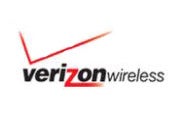It's billed as the nation's fastest wireless network. But it's been slow
to attract users. One year after its launch, Verizon Wireless's 4G LTE
network has failed to capture the imagination of the cell phone-buying
masses, who still prefer the slower-connecting Apple iPhone by large
margins.
With data-download speeds up to 10 times faster than previous
technologies, Verizon's "fourth generation," or 4G wireless network,
would seem to be a hot commodity in a mobile device-crazed world. But a
general iPhone inertia, combined with high 4G LTE device prices and the
lack of a compelling new "4G-only" application are all possible reasons
why Verizon had sold fewer than 2 million 4G LTE-capable smartphones
during the first nine months of 2011.
While not exactly a flop, the slow pickup on 4G LTE phones during
2011 signals that Verizon might be a bit ahead of the demand curve for
faster wireless connectivity. However, the company's first-mover
position in the LTE market might pay off handsomely during 2012, as its
more-complete network buildout should give it an edge over
competitors--if and when an expected LTE-capable iPhone arrives.
iPhone Inertia and Improved 3G
Right out of the gate, Verizon's 4G LTE generated excitment and
buzz as the provider sold more than a quarter-million units of its first
4G LTE phone, the HTC ThunderBolt,
in just two weeks after its mid-March debut. But instead of taking off
like a rocket, Verizon's 4G LTE numbers went into a much slower climb,
adding 1.2 million LTE subscribers in the second quarter, and 1.4
million in the third, roughly split half and half between smartphones
and other devices such as modems or portable Wi-Fi hotspots.
Though
far from a flop, the 4G LTE sales were also well behind those generated
by Apple's iPhone, which only runs on 3G networks in its fastest
versions. Verizon, which gained access to the iPhone in February,
sold 6.5 million iPhones during the first nine months of the year,
compared to a total of about 1.5 million 4G LTE phones. And that's not
counting any iPhone 4s sales, which should just increase the gap.
According to Apple, there were 4 million iPhone 4s devices sold in the
first weekend of sales in October, from Verizon, AT&T and Sprint. So
why do the slower iPhones continue to outsell the speedier 4G LTE
devices?
Even in the face of multiple reviews showing that 4G LTE Android
phones might offer a superior performance edge over iPhones, the fact
remains that people will line up overnight for iPhones (and iPads), and
not for anything else. When it comes time to upgrade, the millions of
largely happy iPhone users simply pick the next version from Apple by
default--even if it runs on a "slower" 3G network.
[Related story: 4G wireless speed tests: Which is fastest?]
Premium Pricing, No Unlimited Data Plan
Two other reasons may have kept users from leaping to 4G LTE
phones: The new tiered data plans that Verizon initiated in July, and
the premium prices for 4G LTE phones, which were the priciest in the
market at either $250 or $300, even with a 2-year contract. By
comparison, the latest basic model iPhones have been just $199 for most
of 2011, for the iPhone 4 as well as the iPhone 4s.
 In
2012, what could change the game significantly is the arrival of an
LTE-capable iPhone. In the weeks and months before that happens,
Verizon's main competitors AT&T and Sprint will be scrambling to do
what Verizon has already done--build a nationwide LTE network capable of
bringing 4G LTE speeds to that iPhone wherever its potential customers
may be.
In
2012, what could change the game significantly is the arrival of an
LTE-capable iPhone. In the weeks and months before that happens,
Verizon's main competitors AT&T and Sprint will be scrambling to do
what Verizon has already done--build a nationwide LTE network capable of
bringing 4G LTE speeds to that iPhone wherever its potential customers
may be.
In 2011, network buildout was the one area where Verizon
outperformed even its own goals for 4G LTE, surpassing its original
intention to cover 178 markets by bringing live services to more than
190 markets by year's end. Even though Verizon had a few network outages, the 4G network largely performed as advertised.
AT&T, by comparison, was able to only launch LTE services in 15
markets by the end of 2011, putting it well behind Verizon. Sprint,
whose current 4G network is live in 71 markets, is even further behind
in the LTE race, with only "plans" to offer LTE services sometime in
2012. That leads us to conclude that despite its somewhat pedestrian
start in 2011, Verizon's 4G LTE network should truly come of age in
2012, allowing the company to "Rule the Air" as its advertisements
beckon, while its competitors struggle to catch up.






0 comments:
Post a Comment